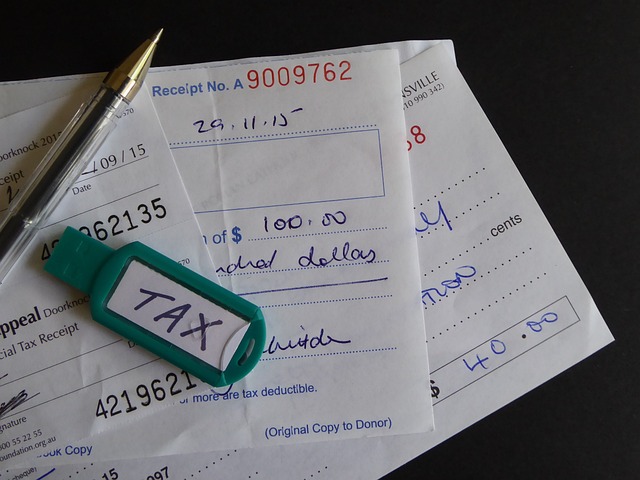Understanding the value of a business is crucial for owners, investors, and stakeholders. Whether you’re planning to sell your business, attract investors, or navigate a legal dispute, an accurate business valuation is essential. This is where a Certified Public Accountant (CPA) plays a vital role.
At Peavy and Associates, our CPAs bring financial expertise and industry knowledge to provide precise business valuations. In this blog, we’ll explore the importance of business valuation, the role of a CPA in the process, and how it can impact your financial decisions.
1. What is Business Valuation?
Business valuation is the process of determining the economic worth of a business or company unit. It involves analyzing financial statements, assets, liabilities, market conditions, and future earning potential.
A proper business valuation is essential for:
✅ Selling or acquiring a business
✅ Mergers and acquisitions
✅ Securing financing or investment
✅ Estate and succession planning
✅ Tax and legal compliance
2. Why Business Valuation Matters
A well-supported business valuation helps businesses make informed decisions in critical situations. It is often required for:
✅ Business Sales & Acquisitions
If you’re selling your business, an accurate valuation ensures you receive a fair market price. Buyers, on the other hand, rely on valuations to determine whether an acquisition is a good investment.
✅ Securing Loans & Investments
Banks and investors often require a formal business valuation before offering loans or investment capital. A CPA-backed valuation provides credibility and transparency to lenders and potential investors.
✅ Mergers & Partnerships
When two companies merge or a new partner joins a business, a valuation is necessary to determine ownership percentages and share values. This prevents disputes and ensures fair negotiations.
✅ Tax & Estate Planning
Business valuations play a key role in estate planning, gift taxes, and succession planning. The IRS often requires an independent valuation to determine tax obligations on business assets.
✅ Litigation & Divorce Settlements
In cases of divorce, shareholder disputes, or lawsuits, business valuations provide an objective financial assessment that courts and attorneys use to settle claims.
3. The CPA’s Role in Business Valuation
A Certified Public Accountant (CPA) brings financial expertise, industry experience, and regulatory knowledge to the valuation process. Here’s how CPAs add value:
📊 Financial Statement Analysis
CPAs review balance sheets, income statements, and cash flow reports to assess a company’s financial health. They adjust for non-recurring expenses, depreciation, and tax liabilities to provide a clearer picture of true earnings.
📉 Risk Assessment & Market Analysis
Business value depends on industry trends, market competition, and economic conditions. CPAs analyze risk factors, competitive advantages, and growth potential to determine the most realistic valuation.
⚖️ Compliance with Valuation Standards
CPAs follow recognized valuation standards such as:
- The Uniform Standards of Professional Appraisal Practice (USPAP)
- The American Institute of CPAs (AICPA) Business Valuation Standards
These frameworks ensure accuracy, credibility, and compliance with tax and legal requirements.
📌 Selecting the Right Valuation Method
CPAs use different valuation methods depending on the business structure and purpose of the valuation:
|
Valuation Method |
How It Works | Best For |
| Market Approach | Compares the business to similar companies recently sold | Business sales & acquisitions |
| Income Approach | Estimates future earnings and discounts them to present value | Businesses with strong revenue streams |
| Asset-Based Approach | Values business based on total assets minus liabilities | Companies with significant physical assets |
A CPA determines the best approach based on the business model, industry, and financial position.
4. Why Work with a CPA for Business Valuation?
Hiring a CPA for business valuation ensures accuracy, objectivity, and compliance. Here’s why it matters:
✅ Objectivity & Credibility
CPAs provide unbiased, data-driven valuations that buyers, investors, and courts trust. A CPA’s assessment carries more weight than informal valuations.
✅ Experience with Financial Regulations
CPAs understand tax laws, financial reporting standards, and IRS requirements, ensuring valuations meet regulatory guidelines.
✅ Expert Negotiation Support
During business sales, mergers, or legal disputes, CPAs provide valuation reports that help clients negotiate fair deals and avoid financial pitfalls.
✅ Maximized Value for Owners
A CPA can help identify ways to enhance business value before selling or seeking investors. This includes optimizing cash flow, reducing unnecessary expenses, and improving asset management.
5. How Peavy and Associates Can Help
At Peavy and Associates, we provide accurate, industry-specific business valuations tailored to your needs. Whether you’re selling your business, preparing for succession, or securing financing, our CPAs ensure you receive a reliable valuation backed by financial expertise.
📞 Call us today for a business valuation consultation and ensure your company’s financial future is secure!










